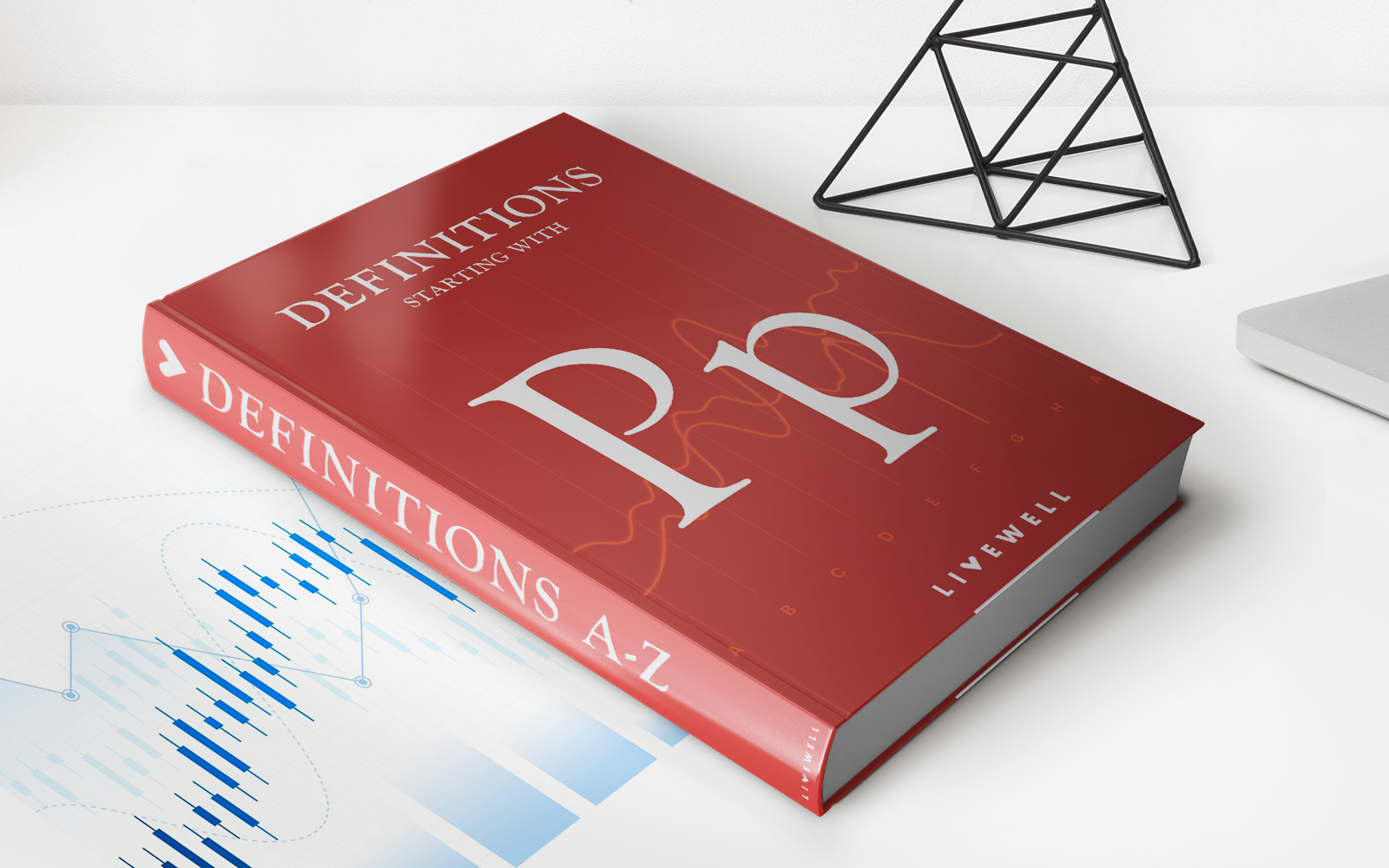

Finance
How Much Does Turo Insurance Cost?
Modified: February 21, 2024
Discover the cost of Turo insurance and how it fits into your finance plan. Get insights into the prices and options available to protect your Turo rentals.
(Many of the links in this article redirect to a specific reviewed product. Your purchase of these products through affiliate links helps to generate commission for LiveWell, at no extra cost. Learn more)
Table of Contents
Introduction
As the sharing economy continues to grow, innovative platforms like Turo have emerged, offering individuals the opportunity to rent out their personal vehicles to others. If you’re considering becoming a Turo host or planning to rent a vehicle through this platform, one important factor to consider is insurance.
Turo provides insurance coverage for both owners and renters, ensuring that both parties are protected in case of an accident or damage to the vehicle. However, the cost of Turo insurance can vary depending on multiple factors. Understanding what influences Turo insurance costs can help you make an informed decision and manage your expenses effectively.
In this article, we will delve into the details of Turo insurance and explore the factors that affect its cost. We will also discuss the different types of insurance coverage offered by Turo and provide insights from both the owner and renter perspectives.
By the end of this article, you will have a better understanding of how much Turo insurance typically costs and what factors contribute to the final premium. Whether you’re a Turo host or a renter, this knowledge will help you navigate the insurance landscape and make informed decisions to protect your investment and finances.
Understanding Turo Insurance
Turo offers comprehensive insurance coverage for both vehicle owners and renters to ensure peace of mind and financial protection. The insurance provided by Turo is specifically tailored to the unique needs of the sharing economy.
For vehicle owners, Turo’s insurance coverage protects against physical damage caused by accidents, theft, vandalism, and certain natural disasters. It also includes liability coverage in case you are legally responsible for bodily injury or property damage to others while the vehicle is being rented out.
Renters, on the other hand, benefit from Turo’s insurance coverage that protects them against financial liability for physical damage to the rented vehicle and liability for bodily injury or property damage to third parties while operating the rented vehicle.
It’s important to note that Turo insurance coverage is primary, meaning that it acts as the primary source of coverage before any personal auto insurance policies are tapped into. This is a significant advantage, as it helps protect your personal insurance policy from potential rate increases due to claims arising from a Turo rental.
Turo’s insurance policies provide liability coverage up to the state minimum requirements. However, Turo also offers additional coverage options for both owners and renters to enhance their protection and increase coverage limits if desired.
Now that we have a general understanding of Turo’s insurance coverage, let’s delve into the factors that can influence the cost of Turo insurance.
Factors that Influence Turo Insurance Cost
The cost of Turo insurance can vary based on several factors that impact the level of risk associated with insuring a vehicle on the platform. Here are some key factors that can influence the cost of Turo insurance:
- Vehicle Value: The value of the vehicle you plan to rent out or rent can affect the cost of insurance. Higher-value vehicles generally have higher insurance premiums due to their increased replacement or repair costs.
- Vehicle Age and Condition: The age and condition of the vehicle can impact insurance rates. Older vehicles may have higher insurance costs due to their increased risk of mechanical issues or higher likelihood of accidents.
- Location: The location where the vehicle is rented and driven plays a role in determining insurance rates. Areas with higher crime rates or more frequent accidents tend to have higher insurance costs.
- Driving History: Both owners and renters’ driving history can influence insurance rates. If you have a history of traffic violations or accidents, you may face higher insurance premiums.
- Insurance History: Your previous insurance coverage and claims history can also impact Turo insurance costs. If you have a history of filing frequent claims or gaps in insurance coverage, you may be deemed a higher-risk customer.
- Insurance Add-Ons: Turo offers additional insurance coverage options, such as supplemental liability, collision, and comprehensive coverage. Opting for these additional coverages will increase the overall insurance cost.
- Driver Age: The age of the driver can affect Turo insurance rates. In general, younger and less experienced drivers are considered higher risk and may face higher insurance premiums.
- Usage: The frequency and purpose of vehicle usage can impact insurance costs. Turo insurance rates may be higher for vehicles with significant mileage or those used for commercial purposes.
By considering these factors, Turo determines the appropriate insurance premium for each individual rental situation. It’s important to communicate accurate and updated information about the vehicle and rental conditions to ensure you receive the appropriate coverage and associated costs.
Now that we understand the factors that influence Turo insurance costs, let’s explore the different types of insurance coverage options available on the platform.
Types of Turo Insurance Coverage
Turo offers several types of insurance coverage options to provide comprehensive protection for both vehicle owners and renters. These coverage options include:
- Owner Protection Plan: This is the primary insurance coverage provided by Turo to vehicle owners. It includes liability coverage for bodily injury and property damage occurring during the rental period, as well as physical damage coverage for the vehicle itself. Turo’s Owner Protection Plan also covers loss of rental income if the vehicle is unable to be rented due to damage or repairs.
- Guest Protection Plan: Turo’s Guest Protection Plan is designed to provide liability coverage to renters while they are operating the rented vehicle. It includes coverage for bodily injury and property damage to third parties, as well as limited physical damage coverage for the rented vehicle.
- Turo Protection Plans: In addition to the basic coverage provided by the Owner Protection Plan and the Guest Protection Plan, Turo offers additional protection plans that owners and renters can purchase to enhance their coverage. These plans include options such as supplemental liability coverage, collision coverage, and comprehensive coverage, which can provide increased limits and further financial protection.
- Commercial Host Insurance: If you operate your Turo business as a commercial host, meaning you rent out your vehicles frequently, Turo offers a commercial host insurance program that provides additional coverage and protection for your business activities.
It’s important to carefully review and understand the details of each insurance coverage option to ensure you have sufficient protection for your specific situation. Consider factors such as the value of your vehicle, your risk tolerance, and your budget when deciding on the appropriate coverage to purchase.
Now that we have explored the different types of Turo insurance coverage, let’s take a look at the insurance costs from both the owner and renter perspectives.
Turo Insurance Costs: Owner Perspective
As a Turo vehicle owner, understanding the cost of insurance is crucial for managing your expenses and maximizing your earnings. The cost of Turo insurance for owners is typically influenced by several factors.
One significant factor is the coverage level chosen by the owner. Turo provides a basic coverage option called the Owner Protection Plan, which is automatically included for all owners. This plan has a deductible that can range from $500 to $3,000, depending on the value of the vehicle and the coverage selected.
Owners also have the option to purchase additional coverage through Turo’s protection plans. These plans offer higher coverage limits and can provide increased protection against potential liabilities and damages.
The cost of Turo insurance for owners is typically a percentage of each trip’s earnings. The exact percentage may vary depending on factors such as the value of the vehicle, the coverage level selected, and the owner’s history with Turo. It’s important to consider these costs when setting the daily rental rate for your vehicle to ensure you are accounting for insurance expenses.
In addition to the insurance cost, Turo charges a small fee for each trip to cover administrative expenses related to insurance processing and claims handling. This fee is typically a percentage of each trip’s earnings and helps cover the costs associated with ensuring a smooth insurance process for both owners and renters.
By understanding the factors that influence insurance costs for Turo owners and carefully considering the coverage options and associated expenses, owners can make informed decisions to protect their vehicles and finances while maximizing their earnings.
Next, let’s take a look at Turo insurance costs from the renter’s perspective.
Turo Insurance Costs: Renter Perspective
For renters using Turo, understanding the cost of insurance is essential in order to determine the overall cost of renting a vehicle on the platform. Turo provides insurance coverage for renters, which helps protect against potential liabilities and damages.
Turo offers the Guest Protection Plan, which provides liability coverage for bodily injury and property damage to third parties while operating the rented vehicle. This coverage is automatically included in the rental cost, and the cost of insurance is factored into the overall pricing structure.
When renting a vehicle on Turo, renters have the option to purchase additional coverage through Turo’s protection plans. These plans can provide increased coverage limits and additional financial protection, giving renters peace of mind during their rental period.
The cost of Turo insurance for renters varies depending on factors such as the value of the vehicle, the coverage options chosen, and the duration of the rental. The insurance cost is typically included in the total rental price and is transparently displayed when booking a vehicle on the Turo platform.
It’s worth noting that when a renter opts for additional coverage through Turo’s protection plans, the cost of insurance will increase. However, this additional cost can provide renters with higher coverage limits and greater protection against potential liabilities and damages, offering added peace of mind.
By considering the insurance costs as part of the overall rental price, renters can accurately budget for their Turo rental and ensure they have the necessary coverage to protect themselves and the vehicle during their rental period.
Now that we’ve explored Turo insurance costs from both the owner and renter perspectives, let’s discuss some additional factors to consider in relation to Turo insurance.
Additional Factors to Consider
When it comes to Turo insurance, there are a few additional factors that both owners and renters should consider to ensure they have the right coverage and understand the associated costs:
- Deductibles: Turo insurance typically includes a deductible, which is the amount that the policyholder is responsible for paying in the event of a claim. Owners and renters should review the deductible amount associated with their coverage and consider their financial situation and risk tolerance.
- Secondary Insurance: If you have personal auto insurance, it’s important to understand how it interacts with Turo’s insurance coverage. Turo’s insurance acts as primary coverage, meaning it will be the first line of protection in case of an incident. Personal auto insurance policies may still provide some coverage for Turo rentals, so it’s essential to consult your insurance provider to understand the extent of your coverage.
- Protection Plans: Both owners and renters should carefully consider Turo’s optional protection plans to determine if additional coverage is necessary. These plans can provide increased coverage limits and enhanced protection, but they also come with additional costs. Assess your individual needs and preferences to decide if the added coverage is worth the expense.
- Insurance Add-Ons: Turo offers various insurance add-ons such as supplemental liability coverage, collision coverage, and comprehensive coverage. These add-ons can provide additional protection but will increase the overall insurance costs. Evaluate the risks involved and assess whether these add-ons are necessary for your particular situation.
- Communication: Clear and open communication between owners and renters is essential in the Turo insurance process. Owners should provide accurate and up-to-date information about their vehicles to ensure proper insurance coverage, and renters should ask any questions they may have regarding insurance coverage and costs before finalizing the rental.
By considering these additional factors, both owners and renters can make informed decisions regarding their Turo insurance coverage and associated costs. It’s important to understand the terms and conditions of the insurance policy, communicate openly, and ensure you have the appropriate level of coverage for your needs.
Now, let’s wrap up our discussion on Turo insurance.
Conclusion
Turo insurance is a vital aspect to consider when participating in the Turo platform as either an owner or a renter. Understanding the factors that influence Turo insurance costs is crucial in managing expenses and making informed decisions to protect your vehicle and finances.
For owners, factors such as the vehicle value, age, and location, as well as their driving history and insurance coverage choices, can influence the cost of Turo insurance. Renter-related factors, like the vehicle usage, driver age, and insurance add-ons, also affect insurance costs from the renter’s perspective.
Turo provides primary insurance coverage for both owners and renters, offering protection against liabilities and damages. Additional coverage options are available through Turo’s protection plans to enhance the level of protection based on individual preferences and needs.
Owners should consider the percentage of trip earnings that go towards insurance costs, while renters should factor the cost of insurance into the overall rental price. Deductibles and interaction with personal insurance policies are also important to consider.
Open communication between owners and renters is essential to ensure accurate and up-to-date information for proper insurance coverage. Turo’s insurance add-ons and protection plans provide an opportunity to customize coverage based on individual preferences and risk tolerance.
By understanding Turo insurance and considering all relevant factors, both owners and renters can make informed decisions to protect themselves, their vehicles, and their financial well-being. It’s important to review and understand the terms and conditions of the insurance policy to ensure adequate coverage and peace of mind.
Whether you’re an owner looking to rent out your vehicle or a renter seeking a convenient and reliable rental experience, understanding Turo insurance is crucial for a successful and hassle-free journey.
Now, armed with this knowledge, go forth and enjoy all the benefits that Turo has to offer, knowing that you have the necessary insurance coverage in place to protect yourself and your investment.
